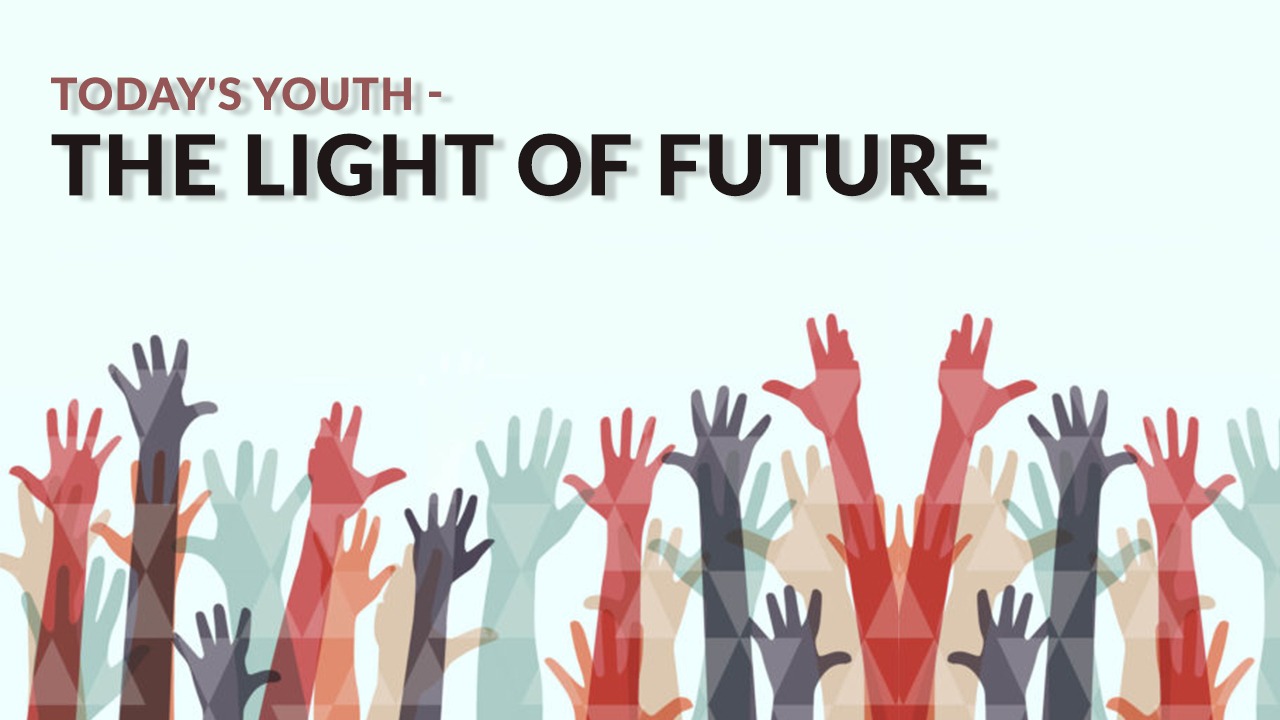
Today's Youth - The Light of Future

Today's Youth - The Light of Future
In the process of youth empowerment, young people are inspired to take ownership of their lives. They achieve this by addressing their circumstances, acting to increase their access to resources, and altering their ideas, values, and attitudes in order to change their awareness. The goal of youth empowerment is to raise the standard of living. Participation in youth empowerment initiatives promotes young empowerment.
Scholars contend, however, that the application of children’s rights should go beyond teaching legal rights and processes to provide a tangible experience of rights.
Adolescent empowerment programmes employ a variety of models to assist youth in achieving empowerment. Around the world, a number of programmes are focused on empowering young people. These programmes may be offered by non-profit groups, governmental agencies, educational institutions, or commercial businesses.
Youth empowerment differs from youth development in that empowerment focuses on bringing about wider communal change, whereas development is more concerned with the growth of the individual.
Youth Empowerment Programmes
Youth empowerment initiatives come in many different forms and are implemented in many different countries throughout the world. Programmes may function in a range of environments. Most programmes work in several settings, which could be crucial to their performance. Improvements in social skills, conduct, academic accomplishment, self-esteem, and self-efficacy are all positive consequences of youth empowerment programmes.
There are initiatives that focus solely on uplifting women and young girls. Regardless of particular objectives or strategies, empowering benefits include raising women’s self-efficacy, self-esteem, and social standing via imparting technical and managerial abilities.
The goal of other youth empowerment initiatives is to reduce poverty. Living conditions for individuals who are poor are deteriorating, leading to a lack of access to resources, food, and education. Poor youth empowerment programmes strive to safeguard or improve their means of subsistence.
Benefits of empowerment
Youth who take part in well-known empowerment programmes gain a number of advantages. Both the business culture and the community culture are ingrained with practises of youth participation and empowerment. Programmes for empowerment also help organisations and adults. They both become more approachable and receptive to young people in the neighbourhood, which improves programmes and boosts youth involvement.
Conclusion
These are some of the milestones that young people may truly reach within reasonable bounds if society as a whole, both individually and collectively, comes together. An Indian non-governmental organisation called Geetanjali Care has been actively working to empower young people.
